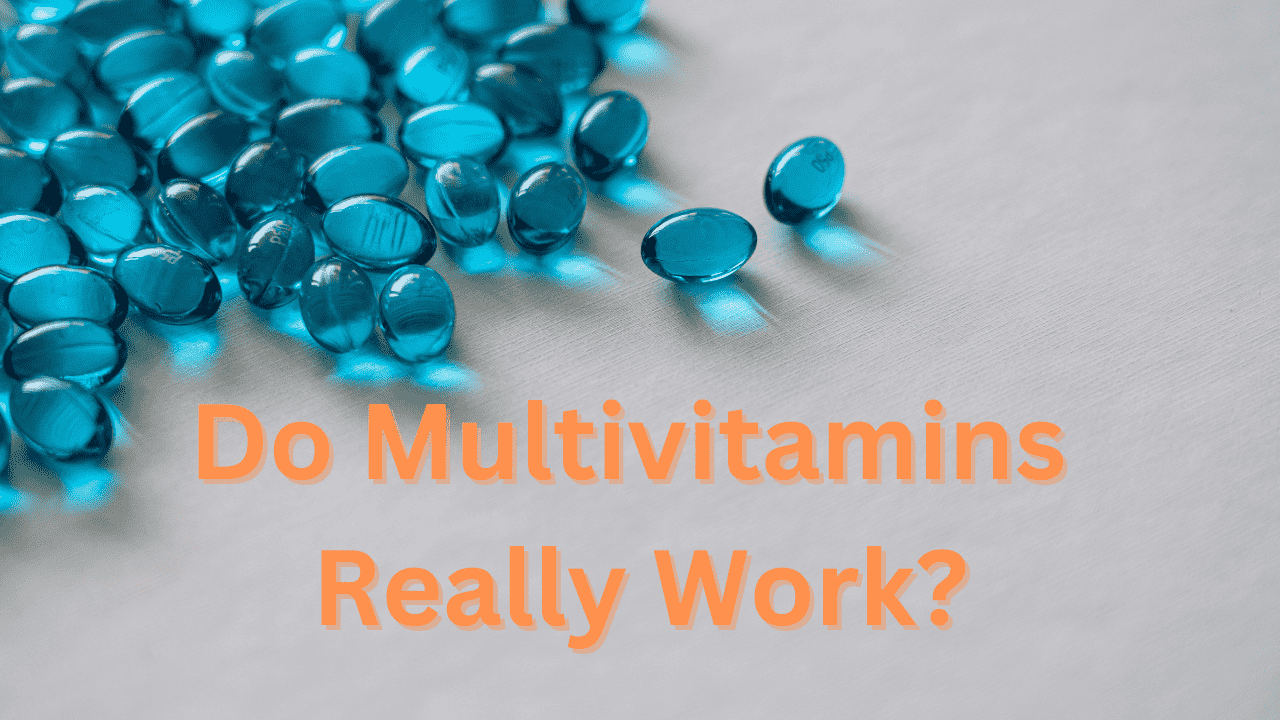Are you a health enthusiast, or do you know someone like that? We’ve all met those folks who think taking multivitamins is the secret to a better life. They treat these little pills like candy, believing they hold some kind of magical power and that multivitamins one a day are essential. But are multivitamins good for health?
In this blog post, we’re going to dig deep into the world of multivitamins – those colorful pills that promise to make you healthier. As the multivitamin industry keeps growing, we’ll find out if these pills are truly worth the hype or if there’s more to the story.
Understanding Multivitamins: What’s the Deal with These Pills?
Imagine multivitamins as the architects of your well-being, meticulously constructing a solid foundation for your body’s vitality. Just like how a skilled architect plans and designs a building to ensure it stands strong, multivitamins map out the blueprint for your health.
These tiny powerhouses supply your body with the essential materials it needs to function optimally. But are multivitamins truly the superheroes they’re made out to be? Let’s dive deeper into the world of multivitamins to uncover the real story.
Multivitamins are tiny capsules filled with vitamins and minerals that your body needs to stay healthy. If you’re not getting enough of these nutrients from your food, multivitamins are supposed to help out.

Need some vitamin D because you’re not in the sun much? There’s a pill for that.
Want a stronger multivitamin to boost immune system? Try a vitamin C pill.
These pills have been around since the 1930s and 1940s, but they’ve become really popular recently. People want to be healthier, and multivitamins seem like an easy way to do that.
What’s the Deal with These Pills?
Health and wellness are big topics these days, and multivitamins are right in the spotlight. The industry is growing really fast, and it could be worth a huge $300 billion by 2024.
The COVID-19 pandemic made people even more interested in staying healthy, and multivitamins became really popular. In India, they sold even more than regular medicines in 2020.
These days, you can find multivitamins in all sorts of forms – not just pills, but also multivitamin gummies, multivitamin liquids, and even special alcoholic beverages.

But here’s the big question: Do these supplements actually do what they promise, or is it all just a placebo effect?
The Hidden Truth: Multivitamins and Their Complicated Story
Behind all the excitement about multivitamins, there’s a problem – they’re not very regulated. That means there aren’t clear rules about how much you should take or when you should stop. Unlike medicines that need a prescription, you can buy multivitamins pretty much anywhere, and you don’t need a doctor to tell you how to take them. That can be a bit risky because you might not know what’s safe.
On top of that, some companies make big promises about what their multivitamins can do, even if they don’t have proof. This can make it confusing for people who just want to be healthier by having multivitamins one a day.
Are Multivitamins Really Magic Pills?
You might think that taking multivitamins is like a quick fix for your health, but it’s not that simple. There’s something called the “placebo effect” – it’s when you feel better because you think you’re taking something good for you.

Multivitamins can make you feel healthier, but it might be because you’re paying more attention to your health overall. Surprisingly, there isn’t strong evidence that multivitamins actually make a huge difference in your health. A big study involving more than 14,000 people found that multivitamins didn’t really have a clear benefit.
Are multivitamins good for you: Pros and cons of Multivitamins
Multivitamin Pros
Multivitamins can help fill nutritional gaps in your diet, ensuring you get essential vitamins and minerals that you might be missing from your daily food intake.
Multivitamins can be tailored to support specific health needs, such as prenatal vitamins for pregnant women, senior formulas for older adults, or immune-boosting formulas with higher levels of vitamin C and zinc.
Regular intake of multivitamins can help prevent deficiencies that may lead to health issues such as anemia (iron deficiency), scurvy (vitamin C deficiency), and rickets (vitamin D deficiency).
Multivitamins can contribute to overall health by supporting various bodily functions, including metabolism, immune function, and bone health, leading to improved well-being and energy levels.
Multivitamins Cons
Taking multivitamins in excessive amounts can lead to hypervitaminosis or toxicity, especially with fat-soluble vitamins like A, D, E, and K, which can accumulate in the body.
Some multivitamins may provide nutrients in proportions that are not optimal for individual needs, leading to imbalances and potential interactions with other nutrients.
The supplement industry is not as tightly regulated as pharmaceuticals, meaning there can be variations in the quality, potency, and purity of multivitamin products.
Relying on multivitamins may give a false sense of security, leading individuals to neglect other important aspects of health, such as a balanced diet, regular exercise, and adequate sleep.
Scientific evidence on the benefits of multivitamins is mixed, with some studies suggesting limited or no significant health benefits for the general population, making their overall efficacy questionable.
Beyond the Pill: Finding True Wellness
When it comes to being healthy, multivitamins aren’t the whole story. The most important thing is to eat a balanced diet with lots of good foods. Instead of relying only on pills, try to eat plenty of fruits, veggies, whole grains, lean proteins, and healthy fats.

If you’re curious about taking multivitamins, it’s a good idea to talk to a doctor first. They can help you figure out what’s best for you based on your nutritional needs.
Conclusion: Navigating the Multivitamin Maze
So, what’s the verdict on multivitamins?
Well, they might give you a little boost, but they’re not magic pills that can solve all your health problems. The best way to stay healthy is by eating well and making good choices.
While multivitamins can be part of a healthy routine, they’re not a replacement for a balanced diet and an active lifestyle. Health is about more than just taking a pill – it’s about taking care of your body in the best way possible.
Have you tried taking multivitamins? Share your experience in the comments below, and don’t forget to consult your doctor before starting any new supplement.
Interested in now your nutritional requirements?
Click the button below to know what are your nutritional requirements based on your basic body data:
Everyone’s nutritional needs are different. Consulting with a healthcare provider can help you determine if you need a multivitamin or if dietary changes are sufficient.


2 thoughts on “Are Multivitamins good for you? Revealing the Mystery Behind Their Health Claims”